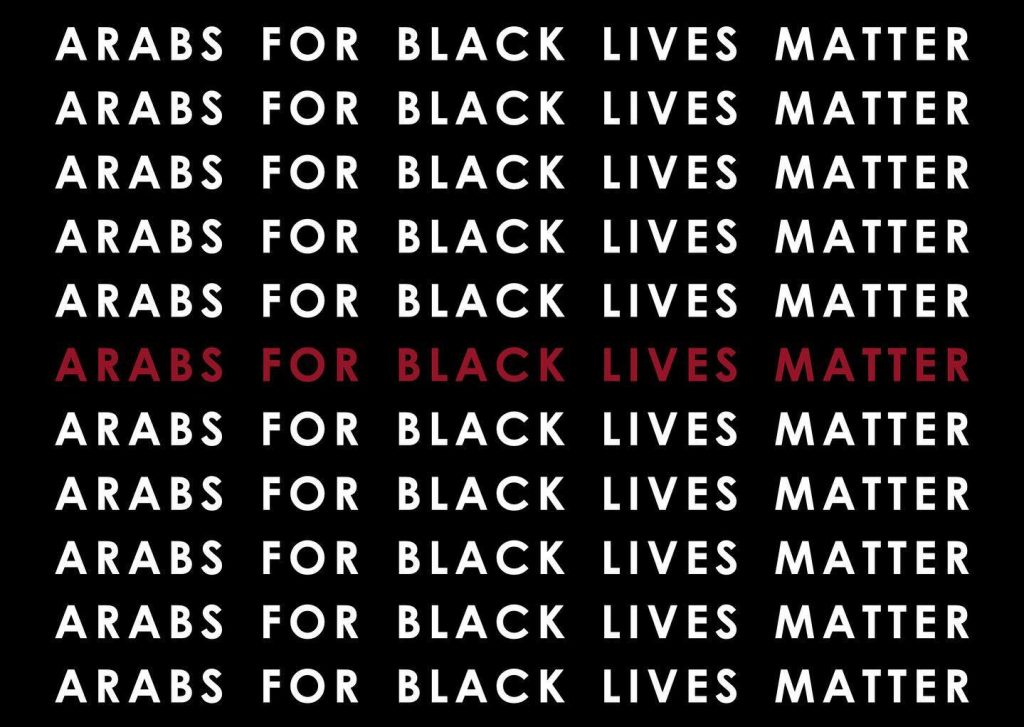
As social media is swamped with photos and videos of primarily Black people protesting the ongoing violence, police brutality, and killing of Black people, non-Black Arabs remain oblivious to anti-Black racism – whether on a global or local scale.
“I am not anti-Black, but…”, “I don’t see colour, we’re all one”, “I prefer to stay away from politics/race talks.”
These are a few of many statements that one can read or hear from non-Black Arabs when confronted with race-based talks – specifically ones that spark conversation on anti-Black racism or racial visibility. From black-face, the use of the N-word and other racial slurs, to mimicking Sudanese people in comedy shows, anti-Black racism in Arab communities is grave, and non-Black Arabs are complicit to the violence against Black people whenever we choose to remain silent.
As countries that have dealt and continue to deal with injustices, it’s disappointing, yet not surprising to see non-Black Arab silence on the ongoing violence towards Black people. The normalization of racially motivated humour, mocking the cause, and the centralization of the Arab struggle and equating it to the violence Black Arabs/people face, are some of the many ways Arabs respond to the ongoing protests. As argued often, “what about the Palestinian cause?”, which is often followed by silence whenever Afro-Palestinians are to be centered in the conversation. The Palestinian cause as a whole is important, however, those choosing to center the cause usually don’t actively talk about, engage or acknowledge it all year round, but choose to do so whenever Black people and anti-Black racism are to be centered in the discourse.
We often jump to justify how and why our pain is greater, without stepping back and acknowledging how, as non-Black Arabs, we uphold a role in the violence towards the Black community. From the history of the Arab slave trade to modern slavery in Arab countries like Libya, the non-Black Arab world often denies their anti-Black racism. At the expense of Black lives, the Arab world has been built and continues to grow on numerous levels, whether that be through the modern slave trade or the exploitation of Black migrant and domestic workers in the Middle East.
Centralizing our pain when a huge part of our privilege comes at the expense of Black lives and the most marginalized is one of many ways non-Black Arabs are complicit in the violence towards Black people.
#BlackLivesMatter – why not all?
With “All Lives Matter” being an argument often made by non-Black people, the point of the Black Lives Matter foundation is to confront systemic oppression, advocate, and bring justice to the most globally vulnerable – Black people.
The Black Lives Matter foundation started back in 2013, following the acquittal of Trayvon Martin’s murderer. Tamir Rice, Breonna Taylor, Ahmaud Arbery, Sandra Bland are a few victims of police brutality and state violence. On May 25, 2020, George Floyd, a Black man, was murdered by Minneapolis police – sparking the recent uproar. Their deaths are just the tip of the iceberg when it comes to violence against Black people. It’s also important to note that, a lot of Black deaths go unreported or receive no coverage at all, while many are thrown in jail without trial and left in prison for years, for crimes they didn’t commit or no evidence to back up accusations made. Take the Exonerated Five as one example of many.
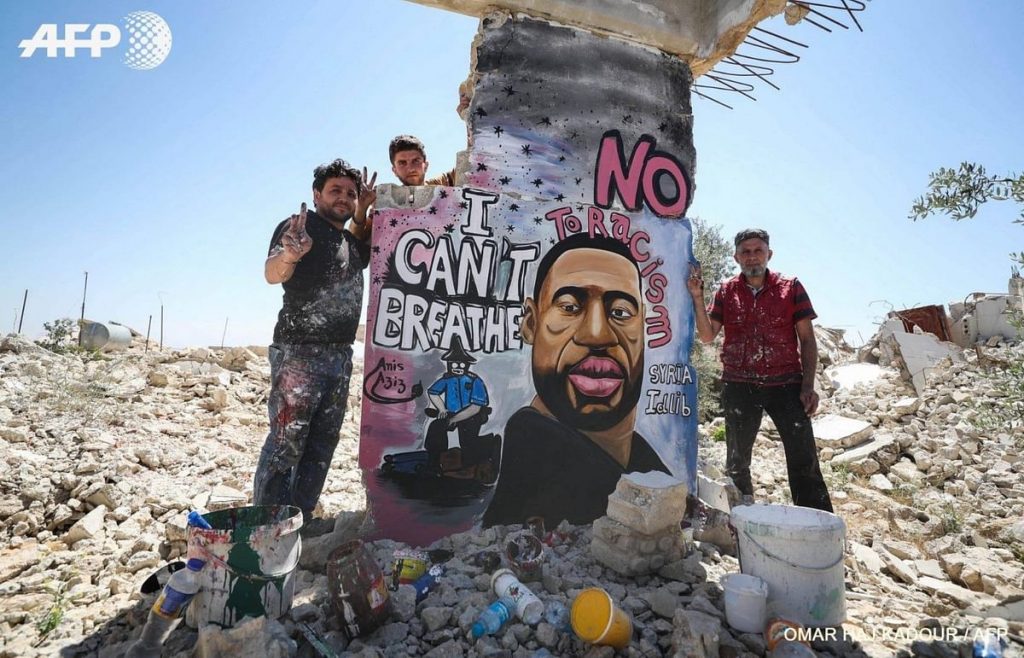
“Despite only making up 13 percent of the U.S population, Black Americans are two-and-a-half times as likely as white Americans to be killed by the police.” And while we’re at it, Black people are also four times more likely to die from COVID-19 in the United Kingdom, opening up other conversations surrounding racism in the healthcare system and neglect towards Black lives. The point is, Black people are at a disadvantage, whether that’s systemically, institutionally, or beyond. Anti-Black racism is a global crisis, and it shouldn’t take Black death for non-Black Arabs to wake up.
The movement echoed in the Middle East, in countries like Palestine, Tunisia, and beyond. From rallies in support in Palestine and Tunisia to hashtags like #امريكا_تنتفض (America rises), which mirrors the one used during in Lebanon (#Lebanonrises) following protests erupting as a result of the ongoing governmental corruption. While mixed reactions in the Middle East were portrayed, conversations within Arab communities surrounding the existence of Afro-Arabs and the discrimination they face were slowly brought to light. However, there’s a twist.
Respectability Politics and Faux Solidarity
As some activists non-Black Arab community organizers speak out on racial division and social issues, many are undeniably relying on respectability politics to prove progression.
Respectability politics is “the set of beliefs holding that conformity to socially acceptable or mainstream standards of appearance and behavior will protect a member of a marginalized group from prejudices and systemic injustices”. As I scroll through social media, I see many non-Black Arab influencers and active social media users go from remaining quiet or posting about the importance of “remaining positive,” to suddenly blindly sharing articles, videos, and photos to exempt themselves from being called out for their silence and lack of use of their platforms to bring awareness. The concept of respectability politics is very much alive in the MENA region. White supremacy is global and hasn’t left anything untouched, including the ways in which we go about confronting social issues (specifically anti-Black racism, where we tend to want to “be nice/respectful” about it despite its severity). When we shy away from confronting anti-Black racism in the name of remaining positive, while often stating its solely an American issue, we not only absolve ourselves from the racism we partake in, we also remain hypocritical in the fight against other forms of institutional racism.
Many are more concerned with their social media aesthetic and how their friends and family might perceive them, forgetting their silence is just as violent. Discussing anti-Black racism shouldn’t be a trend to be deemed worthy of a conversation or thought. The concern with an online persona over Black deaths has led many to further enforce faux solidarity for the sake of conforming to social expectations and their online branding of what’s deemed likable at the moment. Anti-Black racism is not solely a Western crisis, it’s a global one, and our genuine commitment to justice starts within our communities.
Speaking of our communities, that brings me to mention the constant silencing of Egypt’s Nubian people. The Nubian community is one of many examples of Black communities in the MENA region who face anti-Black racism from more than just institutions.
With Nubians standing at three to four million in Egypt, Egypt’s Black community faces anti-Black racism on every level. From being socially displaced, isolated, and silenced, to systemic abuse through Article 263 and beyond. Nubians protested demanding basic human rights, which often leads to state punishments. For instance, the State Security Emergency Court charging 25 Nubians for organizing an unsanctioned protest is an example out of many ways Black people are silenced in the MENA region. Their advocacy is met with a shutdown, whether that’s through the government, or the silence of non-Black Egyptians who don’t see their oppression as worthy of addressing.
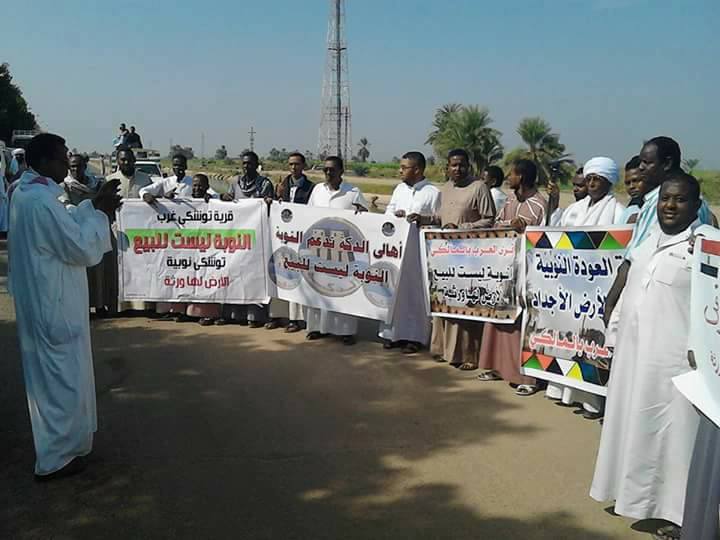
Finally, a non-Black Arab wouldn’t know what it’s like to be a Black-Arab, but a non-Black Arab should understand that as the more privileged party, you don’t get to tell a Black person what is or isn’t racist, you don’t get to dictate how a Black person expresses their rage and tone, and you don’t get to decide what is or isn’t appropriate action – especially when you’re not the one directly affected by the consequences. Your job is to learn to understand, and not learn to simply rebuttal and justify your own set of prejudices. Blindly dismissing pain, we don’t experience, makes us complicit.
From Lebanese singer and songwriter Tania Saleh’s Blackface image followed by a tone-deaf caption stating: “I wish I was Black”, to Egyptian makeup artist Zeina El-Naggar posting her “transformation” into an “African look”, many non-Black Arabs are actively ignorant to the core issue at hand, and instead, further exploit Blackness through self-centralization. The dismissal of anti-Black racism has led the non-Black Arab community to continuously grow cold to their prejudice and further normalize racism. You can start revolutions and overthrow governments, but if you don’t face your prejudice and hold yourself accountable for your wrongdoings, misunderstandings, ignorant thoughts and beliefs, then you defeat the purpose of a revolution and the desire for a better society.
*The opinions and ideas expressed in this article do not reflect the views of Egyptian Streets’ editorial team. To submit an opinion article, please email [email protected].
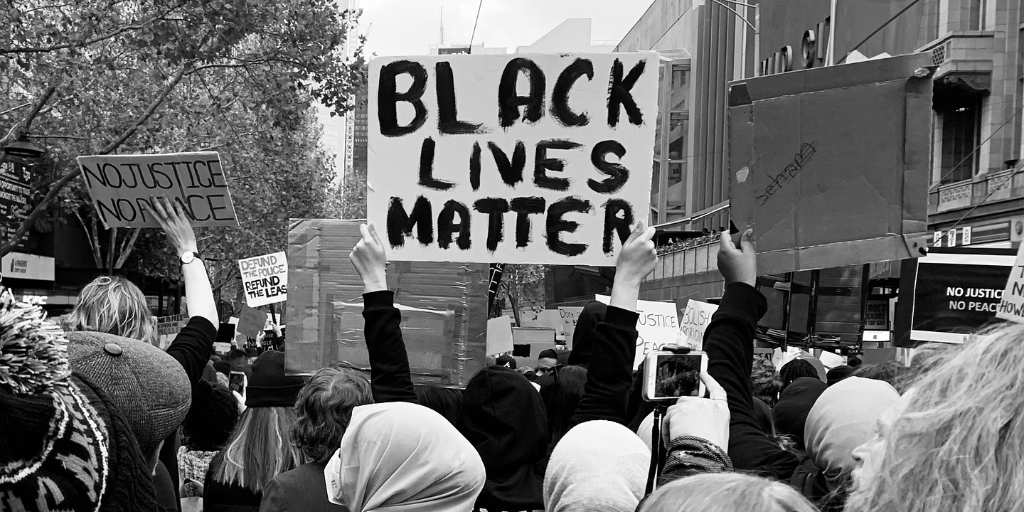



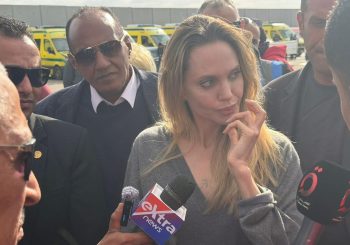

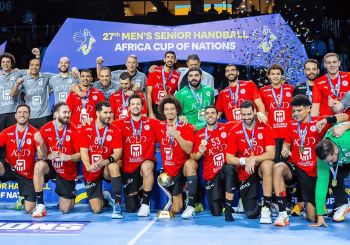
Comments (8)
[…] Persecution of black Christians in Africa is an epidemic and experts warn it could soon lead to a continent-crippling war. “Open Doors estimates that 245 million out of 631 million African Christians currently experience high levels of persecution, up from 215 million last year.” In Nigeria alone, “Tens of thousands [of Christians] have been killed and millions of refugees created.” Christians are treated as “second class citizens.” Egypt, a country that receives significant American aid, is on “every list” of African nations that persecute Christians. It is also one of many Muslim countries where a specifically Islamic, Arab anti-black racism is pervasive. […]
[…] Anti-Black Racism in the Arab World: Denial, Ignorance, or Both? […]